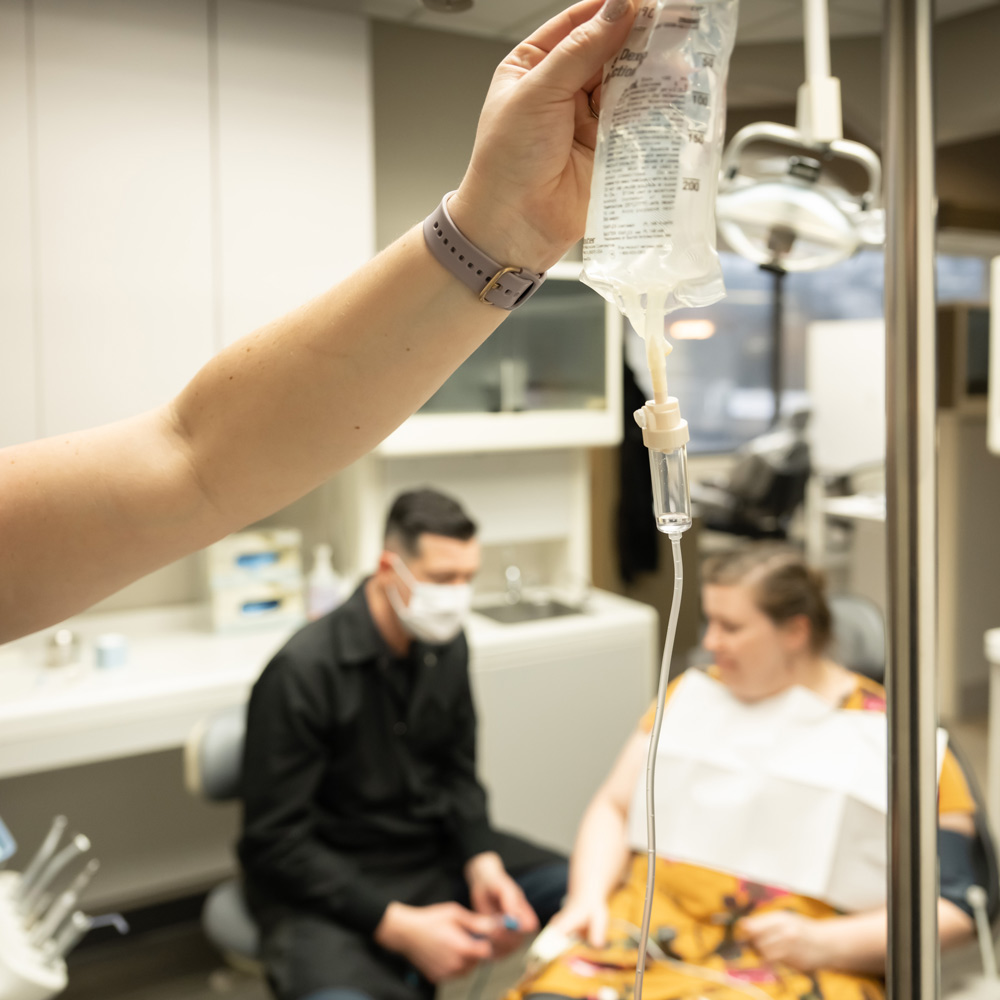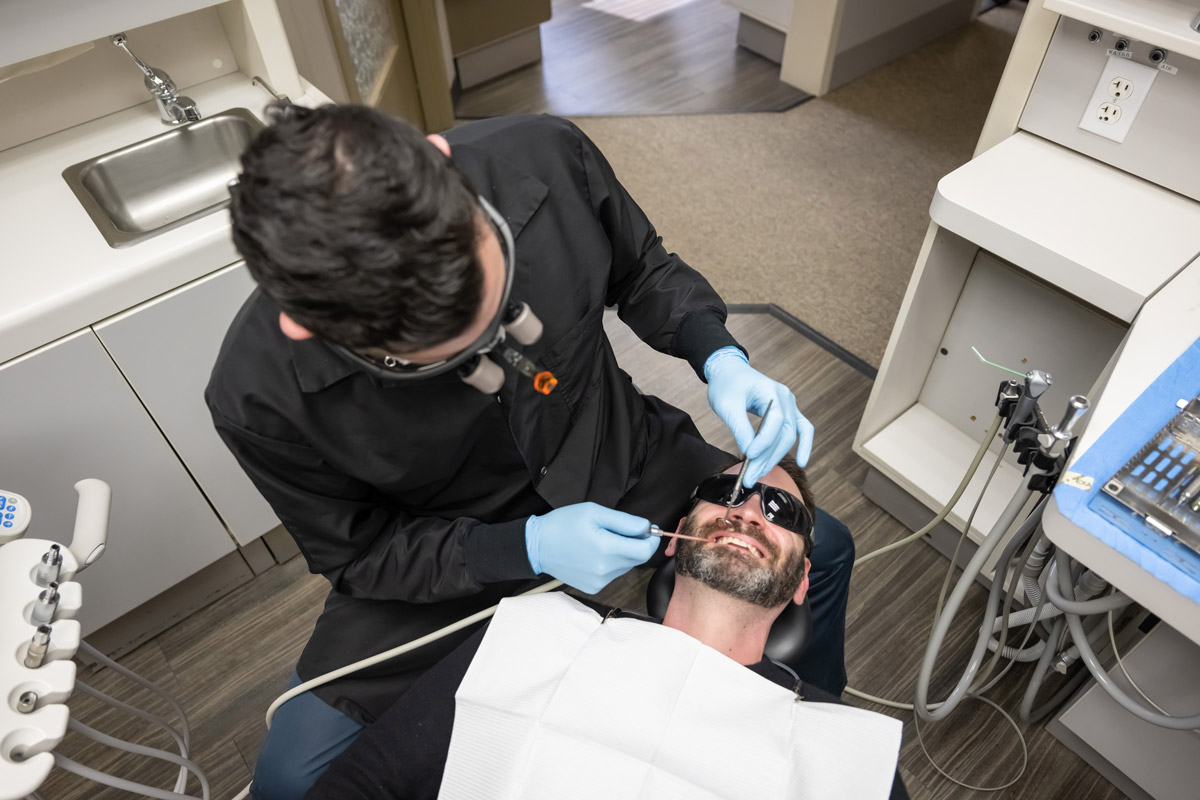
Sedation Dentistry uses medication to help you relax for a better dental care experience.
Sedation dentistry can even help patients with severe dental anxiety.
Sedation dentistry offers many benefits to meet your individual needs. Sedation allows your body to relax more completely. This increases the effectiveness of local anesthesia. Sedation dentistry reduces the sensation of passing time. This can be very useful if you need complex or multiple treatments in a single sitting. It also prevents your muscles from stiffening or becoming sore due to spending extended periods of time in one position.
In every case, your sedation is closely monitored by experienced dental professionals who ensure your safety and comfort.
Sedation Methods
Nitrous Oxide, commonly known as laughing gas, is a mild dental sedation medication. Once inhaled, it induces a state of mild relaxation. It also reduces sensitivity to pain. Nitrous Oxide is safe for virtually every patient, regardless of age. Following treatment, oxygen is used to neutralize the effects of the nitrous oxide. Once this is complete, you will be fully alert and able to drive yourself home.
Oral Conscious Sedation, or OCS, provides a stronger level of sedation than Nitrous Oxide. Many patients prefer to use OCS for the deeper relaxation it provides. Though you are still able to stand, walk, or answer questions, you remain in a calm and drowsy state throughout the treatment. With OCS, many patients have found they have little memory of the procedure after the fact. For patients with dental anxiety, this can be a great benefit.
Intravenous Sedation, or IV Sedation, is generally used with shorter treatment sessions. The effects are immediate and may cause you to feel as though you slept through the treatment. You may feel groggy when the IV is stopped, but this will fade over the next few hours.
Unlike Nitrous Oxide, if you choose Oral Conscious or IV Sedation, you will need someone to provide your transportation on the day of your procedure. While there are no lingering aftereffects, the sedative effects of these options can take up to 24 hours to fully diminish.
With general anesthesia, you will be unconscious and unable to respond during dental procedures. In this unconscious state, you will not feel any pain and there is a complete absence of any anxiety or fear, which is why many patients ask about using general anesthesia. The effects typically wear off after a few hours, but it is required that you arrange for a ride home.
Your safety is our top priority. At your appointment, be sure to tell us:
- Any prescription medications or over-the-counter medications you are taking
- Any herbal or nutritional supplements you are using
- Any allergies you have, particularly medication reactions
- Any health conditions you have
- Any questions or concerns you may have about your treatment or about sedation dentistry
For more information about using sedation dentistry with your next treatment, contact Downtown Dental Associates.

